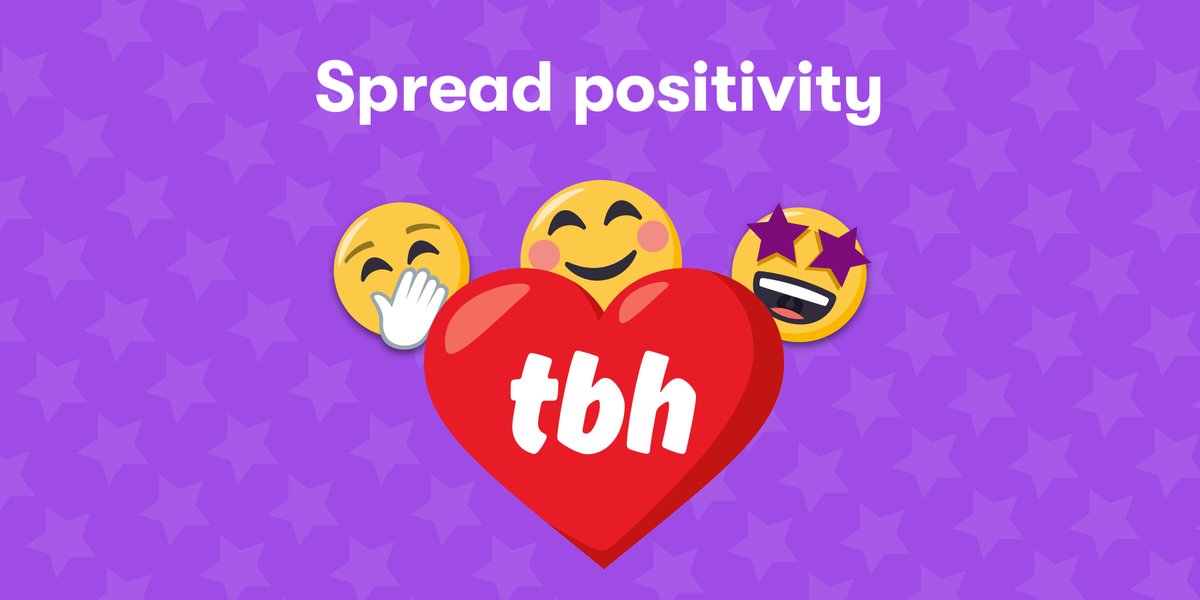What is TBH and why has Facebook bought it?
Anonymous chat app for teens has only been on the App Store since August

A free daily email with the biggest news stories of the day – and the best features from TheWeek.com
You are now subscribed
Your newsletter sign-up was successful
Facebook is adding yet another company to its growing portfolio of start-ups with the purchase of teen chat app TBH.
The app, named after the acronym for “to be honest”, debuted in the US in early August and has since been downloaded by five million people worldwide.
TBH allows teenagers “to send anonymous compliments to each other”, The Guardian says, a “unique twist on the anonymous-messaging model of previous viral hits such as Secret, Yik Yak and Sarahah”.
The Week
Escape your echo chamber. Get the facts behind the news, plus analysis from multiple perspectives.

Sign up for The Week's Free Newsletters
From our morning news briefing to a weekly Good News Newsletter, get the best of The Week delivered directly to your inbox.
From our morning news briefing to a weekly Good News Newsletter, get the best of The Week delivered directly to your inbox.
It’s not yet known how much the acquisition cost, but TechCrunch says the takeover is believed to be worth “less than $100m”.
Facebook owns two of the most popular social media apps on the market, Instagram and WhatsApp, so why did it invest in the teen chat start-up?
Here’s everything you need to know about TBH.
What is TBH and how does it work?
A free daily email with the biggest news stories of the day – and the best features from TheWeek.com
TBH launched on Apple’s iOS App Store on 3 August as a means for teens to send each other compliments without the receiver knowing who sent them.
The company says users can create polls that aim to be both “fun” and “uplifting”, such as “Who is most likely to be president?”, and “Best person to go on a road trip with”.
People chosen as contenders in a poll receive a notification but can only see the age and gender of the person who picked them. Names are only visible when you send someone an anonymous message, select them for a poll or add them as a friend.
TBH doesn’t use a conventional up-vote system such as Facebook Likes, with users instead receiving “gems” when they are picked for a poll. You get a blue gem if you are picked by a boy, while girls send pink gems. “Non-gender” users send purple gems.
These can be used to “unlock questions and other features in the future”, the firm says.
Why did Facebook buy it?
TBH says it shares “many of the same core values about connecting people through positive interactions” as its now-parent company.
In a statement to TechCrunch, Facebook added: “We’re impressed by the way TBH is doing this by using polling and messaging, and with Facebook’s resources TBH can continue to expand and build positive experiences.”
Although other Facebook-owned firms such as Instagram and WhatsApp run relatively “independently”, the website says, TBH’s founders will become employees of the social media giant.
Professor Mark Skilton, from Warwick Business School, told BBC News that it is "the latest example of Facebook snapping up a start-up that could potentially game-change the way people consume social media and erode its own user base.
“TBH appeals to the teen market - which we know is a very fickle age group - and Facebook knows that it and other apps like it can go viral and explode in popularity very quickly.”
Facebook has also “been losing its teen users to the photo-and-video-sharing rival Snapchat”, reports Fortune, and to its own photo-based app Instagram.
The acquisition of TBH signals the social media firm is exploring avenues to regain its younger user base, the website says.